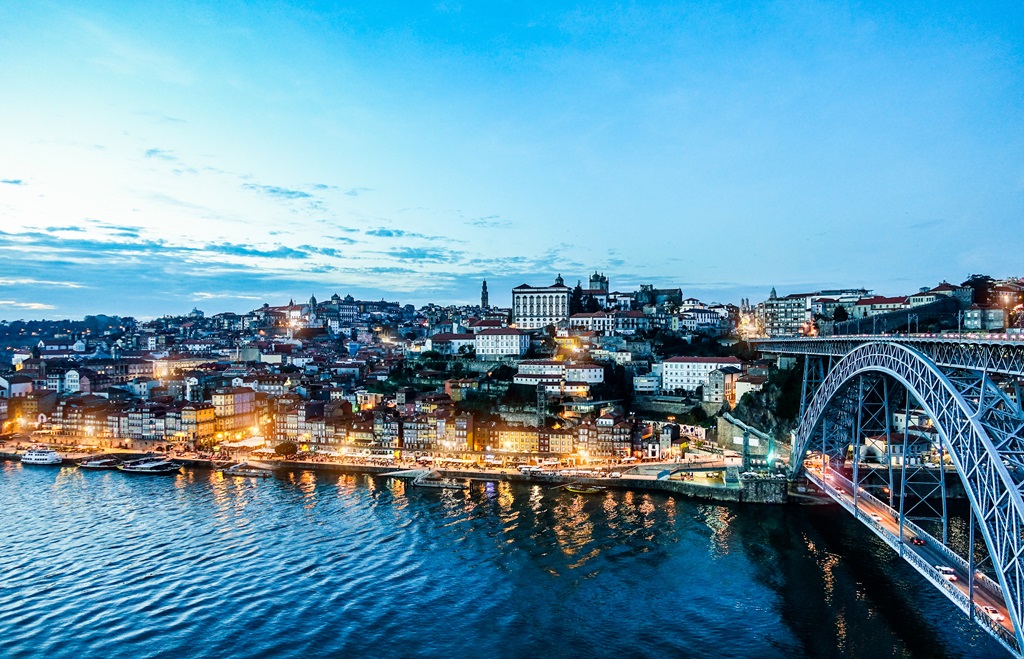Portugal remains one of the most appealing destinations for Canadians dreaming of a European lifestyle.
Between the sun-drenched coastlines, safety, rich culture, and a cost of living that is still about 30 percent lower than Canada’s, it feels like a rare balance of beauty and practicality.
Yet, the Portugal of 2026 is not quite the same as the idyllic version that filled relocation forums a few years ago.
Today, moving here takes more than enthusiasm; it requires strategy.
The country’s housing market has tightened, bureaucracy has evolved under the new AIMA (which replaced SEF), and tax incentives once driving mass migration, such as the Non-Habitual Resident program, have been replaced by the narrower IFICI regime.
These changes mean that newcomers must plan smarter, earlier, and with clearer financial expectations.
Still, the promise of Portugal endures.
Whether it is a pensioner seeking a peaceful coastal retreat, a digital nomad chasing year-round sunshine, or a family craving safety and balance, Portugal continues to deliver, just with new rules to understand and a few more forms to fill out along the way.
Cost of Living: Still Lower, But With Caveats
One of the biggest reasons Canadians continue to choose Portugal is the cost of living.
On paper, it’s still significantly lower than in Canada. Groceries, restaurant dining, and public transport remain affordable, and daily life can cost around 30% less overall.
A couple living outside Lisbon or Porto can live comfortably on about $2,500 to $3,000 CAD per month.
However, the reality has shifted. Housing costs have become the country’s major affordability challenge.
Rents in Lisbon, Porto, and parts of the Algarve have risen sharply, often reaching levels similar to Western European capitals. In central Lisbon, a one-bedroom apartment now averages around €1,400 per month.
That’s a steep contrast to the lower everyday expenses most newcomers expect when they first arrive.
Outside the major cities, though, the story is different.
Smaller inland towns, villages in the Alentejo region, and secondary coastal cities like Setúbal or Aveiro remain far more affordable.
Daily living costs there still align with the Portugal people read about five years ago.
The takeaway? Portugal is still one of Europe’s best-value countries for Canadians, but where you decide to live now matters more than ever.
Those who are flexible about location will find it much easier to maintain a comfortable lifestyle while enjoying everything that makes Portugal special.
Climate and Lifestyle: Sunshine With a Few Surprises
Portugal’s climate continues to be one of its biggest selling points for Canadians.
The country enjoys more than 300 days of sunshine each year, especially in the southern and coastal regions. Winters are mild, summers are long and dry, and the average annual temperature hovers around 21°C. For those escaping harsh Canadian winters, the difference feels life-changing.
But while the outdoor climate is almost perfect, the indoor experience can be unexpectedly chilly.
Many older homes and apartments lack central heating or proper insulation.
As a result, even with 15°C outside, homes can feel cold and damp during winter months. Most newcomers quickly learn to budget extra for portable heaters, electric blankets, and dehumidifiers to stay comfortable.
Despite that, the lifestyle advantages easily outweigh these small inconveniences.
Portugal’s pace of life is slower, more social, and deeply connected to nature. Locals take time for meals, conversation, and family.
Outdoor cafés stay lively throughout the year, hiking trails and beaches remain accessible, and community events are frequent.
For Canadians accustomed to a faster rhythm and long winters indoors, it’s an adjustment—but a welcome one.
Safety, Community, and Integration
Portugal’s reputation as one of the safest countries in the world is well-earned. It consistently ranks in the global top ten for low crime and overall peace of mind, giving Canadians a sense of comfort that’s hard to match elsewhere in Europe.
The relaxed pace of life extends into everyday interactions, where friendliness and respect are part of the culture.
For newcomers, this welcoming environment makes integration smoother than expected.
English is widely spoken in cities like Lisbon, Porto, and across much of the Algarve. From local shopkeepers to government offices, Canadians will find it relatively easy to navigate daily life without an immediate need for fluency in Portuguese.
However, those who make an effort to learn the language often find that it opens doors—literally and figuratively. It helps when dealing with official matters and deepens connections with local communities.
Portugal’s bureaucracy, however, remains a reality check. While the new AIMA agency has replaced SEF to modernize the system, administrative processes can still be slow and unpredictable.
Appointments may take months, and documents often require follow-up. Patience is not just helpful here—it’s essential.
Despite these small hurdles, the sense of community in Portugal stands out.
Whether through neighborhood markets, expat meetups, or local festivals, it’s easy to feel a sense of belonging. Canadians who approach life here with curiosity, respect, and a willingness to adapt often find themselves embraced by a culture that values simplicity, connection, and time well spent.
Visas and Residency Pathways for Canadians (2026 Update)
For Canadians planning to stay in Portugal longer than 90 days, choosing the right visa is the first big step.
The country’s immigration system has evolved significantly in recent years, especially with the introduction of the Agency for Integration, Migrations, and Asylum (AIMA), which officially replaced SEF.
This change aims to modernize application management, but processing times can still vary depending on the applicant’s consulate and the volume of requests.
All national visa applications must now start through Portugal’s official e-Visa portal before booking an appointment at one of the Portuguese consulates in Canada—located in Toronto, Montreal, Ottawa, and Vancouver.
Once the visa is issued, applicants receive a 120-day entry visa, which allows them to travel to Portugal and finalize their residence permit at an AIMA office.
On average, the processing time for national visas ranges from 30 to 60 days, though it can take longer during peak months.
As of 2026, three main visa types remain the most popular among Canadians: the D7 Passive Income Visa, the D8 Digital Nomad Visa, and the Golden Visa for investors.
Each pathway offers a distinct set of advantages, depending on the applicant’s income type, lifestyle goals, and long-term plans in Portugal.
Short-term visitors from Canada can still travel visa-free for up to 90 days in any 180-day period under the Schengen Agreement.
However, two new EU systems are coming into play: the Entry/Exit System (EES), which began rolling out in 2026 and records biometric data upon entry, and ETIAS, an electronic travel authorization launching in 2026.
Canadians planning brief trips should stay informed about these updates to avoid any surprises at the border.
In short, the Portuguese immigration process has become more digital and structured, but it still rewards careful preparation.
Gathering the right documents early, understanding income thresholds, and aligning your visa type with your actual financial profile will make a world of difference in getting approved smoothly.
The D7 Passive Income Visa
The D7 visa remains one of the most popular residency routes for Canadians who want to move to Portugal without actively working in the country.
It was originally designed for retirees and individuals living off pensions, investments, or other passive income streams.
In 2026, the financial thresholds are linked to Portugal’s minimum wage, which now stands at €870 per month. Applicants must show proof of stable income that meets or exceeds this amount for the main applicant, plus 50% for a spouse (€435/month) and 30% for each dependent child (€261/month).
Most consulates also require proof that applicants hold at least 12 months’ worth of income deposited in a Portuguese bank account before applying.
In addition to financial stability, proof of accommodation is mandatory. This usually means a signed 12-month lease or a property deed registered with the tax office. Temporary Airbnb contracts or hotel stays are not accepted for the D7.
Another key requirement is minimum physical presence. D7 residents must spend at least 16 months in Portugal during the initial two-year residence period and cannot be absent from the country for more than six consecutive months.
This condition makes the D7 best suited for applicants planning to live in Portugal full-time rather than use it as a secondary residence.
Finally, all D7 applicants must hold valid health insurance and an apostilled Canadian criminal record check (RCMP).
Since Canada joined the Apostille Convention in 2024, document preparation has become much easier.
The D7 continues to be one of the most accessible and affordable ways for Canadians to gain Portuguese residency, particularly for retirees, landlords, and investors with predictable passive income.
The D8 Digital Nomad Visa
The D8 Digital Nomad Visa was introduced to accommodate the growing number of remote workers and freelancers earning income from outside Portugal.
It has quickly become one of the most sought-after visas among Canadians working in tech, consulting, marketing, or creative industries.
To qualify in 2026, applicants must prove that their active income—either from an employer or freelance clients based abroad—meets at least four times the Portuguese minimum wage, which equals €3,480 per month.
This figure must be demonstrated through recent payslips, contracts, or bank statements showing consistent earnings.
The D8 has two distinct paths, depending on how long you intend to stay:
- Temporary Stay Visa: Valid for up to one year, this option suits those who want to experience life in Portugal without making a long-term commitment. It allows multiple entries but does not lead to permanent residency or citizenship.
- Residency Visa: Intended for long-term relocation, this visa is initially valid for four months, during which the applicant must travel to Portugal and attend an appointment with AIMA to obtain a two-year residence permit. The permit can be renewed and begins the five-year countdown to citizenship.
An increasing number of AIMA offices are requesting a Portuguese Social Security Number (NISS) during the residence permit stage.
While not yet a formal legal requirement, it is wise for applicants to obtain one early to prevent delays.
As with other residence visas, applicants must also provide proof of accommodation, valid health insurance, and an apostilled criminal record certificate from Canada.
For many Canadians, the D8 is a practical way to balance a remote career with Portugal’s lifestyle advantages.
It offers stability, access to healthcare, and a clear pathway to permanent residency—while allowing them to continue working for international employers or clients.
The Golden Visa (Investment Residency Program)
Portugal’s Golden Visa remains active in 2026 but has undergone major reforms that changed its structure completely.
The once-popular real estate routes have been eliminated, forcing investors to shift toward more productive or cultural forms of investment.
Under the current rules, the program now focuses on fund-based and contribution routes that stimulate the local economy. The main qualifying options include:
- Investment Fund Subscription: A minimum of €500,000 in a regulated Portuguese venture capital or private equity fund. These funds must not hold real estate assets and must be registered with the Portuguese Securities Market Commission (CMVM). This is now the most common route for new applicants.
- Cultural or Artistic Contribution: A €250,000 donation (or €200,000 in low-density regions) to support national heritage preservation or cultural projects.
- Scientific Research: A €500,000 contribution to research activities carried out by accredited public or private institutions.
- Job Creation: The creation of 10 full-time jobs (or 8 in low-density areas).
- Company Investment: A €500,000 capital injection into a Portuguese company, along with the creation or maintenance of at least five full-time positions for three years.
The program’s key advantage—its minimal stay requirement—remains unchanged.
Holders need to spend only an average of seven days per year in Portugal, making it ideal for investors seeking flexibility rather than full relocation.
However, it’s worth noting that the Golden Visa is now very different from the D7 or D8 pathways.
While those require physical residence and income proof, the Golden Visa primarily suits high-net-worth individuals looking for a European base, Schengen mobility, and a route to citizenship after five years of holding residency.
In 2026, the Golden Visa continues to attract Canadians seeking diversification, but it is now a more selective and purpose-driven program than the property-based investment option it once was.
Other Visa Pathways Worth Knowing
While the D7, D8, and Golden Visa programs are the most common routes for Canadians moving to Portugal, several other options may fit specific circumstances or family needs.
D2 Entrepreneur Visa
This visa is aimed at entrepreneurs, freelancers, and independent service providers who plan to establish or invest in a business in Portugal.
There is no fixed minimum investment, but applicants must present a detailed and viable business plan that demonstrates potential economic value to the country. Strong emphasis is placed on job creation, innovation, or export potential.
It’s a practical choice for Canadians who want to build something locally or transition from freelance work to a more permanent base in Portugal.
Student Visa
Canadians accepted into a recognized Portuguese educational institution can apply for a student visa, allowing them to live in Portugal for the duration of their studies.
Students may also work part-time to help support their expenses.
This route is often used by younger Canadians pursuing international degrees or language programs.
Family Reunification Visa
The family reunification visa allows immediate relatives of legal residents in Portugal to join them.
Eligible family members include spouses or registered partners, dependent children under 21 (or up to 24 if full-time students), and dependent parents of either spouse.
The sponsoring resident must demonstrate sufficient accommodation and income to support everyone included in the application.
Each of these visas can ultimately lead to permanent residency and citizenship after five years, provided applicants maintain legal residence and comply with renewal requirements.
Pre-Move Blueprint
Tax System and Financial Considerations (Post-NHR Era)
A major shift in Portugal’s appeal to foreign residents came with the end of the Non-Habitual Resident (NHR) tax regime.
The program officially closed to new applicants on January 1, 2024, with a final transitional period for those who had taken concrete relocation steps in 2023 ending on March 31, 2025.
From 2026 onward, NHR is completely replaced by the new Tax Incentive for Scientific Research and Innovation (IFICI), sometimes called NHR 2.0.
The IFICI Regime
IFICI still provides 10 years of tax benefits, but it’s far narrower in scope.
- 20 % flat tax on Portuguese-source income from approved professional activities.
- 0 % tax (full exemption) on most foreign-source income — such as dividends, employment income, or capital gains.
Eligibility is restricted to newcomers who have not been Portuguese tax residents in the past five years and who work in specific high-value sectors like scientific research, ICT, audiovisual production, R&D, startup environments, or executive-level management in exporting companies.
For most Canadians, the key takeaway is that retirement income no longer qualifies for special treatment.
Pensioners, consultants, and digital freelancers outside those innovation sectors now fall under Portugal’s regular income-tax system.
Standard Taxation and Double Tax Relief
For those outside the IFICI regime, Portugal’s progressive rates apply — from 14.5 % to 48 % on income exceeding roughly €78,800.
Tax residency is determined by spending over 183 days per year in Portugal or maintaining a permanent home there.
Fortunately, Portugal and Canada have a Double Taxation Agreement, ensuring the same income isn’t taxed twice.
Canadian citizens will generally pay tax in the country where they are deemed residents, receiving credits or exemptions on the other side as needed.
What This Means for Canadians
Canadians moving to Portugal in 2026 should reassess their post-retirement and remote-work tax strategies.
The IFICI regime rewards highly qualified professionals but offers little for passive earners.
For everyone else, local income and pensions are now taxed under standard rules — though the overall cost of living and healthcare affordability still make Portugal a competitive choice for long-term residence.
Choosing Where to Live in Portugal
Where you choose to live will shape your entire experience in Portugal. The country offers a variety of lifestyles—from the cosmopolitan pace of Lisbon to the calm rhythm of the Algarve’s coastline. For Canadians, the three main destinations continue to be Lisbon, Porto, and the Algarve, each offering distinct pros and cons in 2026.
Lisbon: The Cosmopolitan Capital
Portugal’s largest and most dynamic city, Lisbon, remains the heartbeat of the nation’s economy. It attracts professionals working in tech, startups, and finance. The city’s international airport makes travel easy, and the social scene is vibrant with expat communities, coworking hubs, and cultural events throughout the year.
Porto: The Historic Northern Hub
Porto blends old-world charm with modern convenience. It’s smaller, more traditional, and often described as Lisbon’s quieter sibling. The architecture, cuisine, and riverfront views give it an authentic Portuguese feel without the intensity of the capital.
The Algarve: The Sun-Drenched Southern Coast
For Canadians seeking sunshine and a slower lifestyle, the Algarve remains unmatched. It’s the most popular region for retirees, with over 300 days of sunshine annually and a well-established English-speaking community. The coast offers resort living, golf courses, and outdoor leisure year-round.
Healthcare and Education
Healthcare in Portugal
Portugal’s healthcare system is one of the strongest in Southern Europe, offering universal coverage through the Serviço Nacional de Saúde (SNS).
Once registered as a legal resident, Canadians can access public healthcare services at significantly lower costs than in Canada.
A typical doctor’s visit costs around €5–€10, and emergency care is generally efficient and affordable.
The public system provides excellent primary and emergency care, but waiting times for specialists can be long. Many expats and retirees choose to complement their SNS access with private health insurance, which offers faster appointments, English-speaking doctors, and wider hospital choices.
Plans for foreigners start around €40–€80 per month, depending on coverage and age.
Portugal’s medical standards are high, and the country has earned growing recognition for its hospital infrastructure and trained professionals.
Major cities like Lisbon, Porto, and Faro host top-rated private hospitals such as CUF, Lusíadas, and Hospital da Luz, which are popular with international patients.
Education in Portugal
For Canadians moving with children, Portugal offers a balanced mix of public, private, and international schooling options.
Public schools are free for residents and follow the national curriculum, but classes are taught in Portuguese. For families planning long-term stays, this can be a great way for children to integrate and become bilingual.
However, most expat families prefer international schools, especially in Lisbon, Cascais, and the Algarve.
These institutions often follow British, American, or International Baccalaureate (IB) programs. Annual tuition typically ranges from €7,000 to €20,000, depending on the school and grade level.
Higher education is also an attractive option in Portugal.
Universities such as the University of Lisbon, NOVA University, and the University of Porto are globally ranked and offer several English-taught programs—often at a fraction of the tuition cost found in North America.
For both healthcare and education, Portugal provides a high standard of quality, accessibility, and value—factors that continue to make it an appealing destination for Canadians seeking a balanced and sustainable lifestyle abroad.
Path to Permanent Residency and Citizenship
One of the main reasons Canadians choose Portugal over other European destinations is its clear and attainable path to citizenship.
The process is straightforward: live in Portugal legally for five years, maintain good standing with AIMA, and meet the basic integration requirements.
Permanent Residency
After five years of continuous legal residence, you can apply for permanent residency.
This status allows you to live, work, and study in Portugal indefinitely, with fewer renewal obligations and the same rights as other EU residents—except voting in national elections.
To qualify, you must have:
- Maintained legal residence without long absences (no more than six consecutive months or eight non-consecutive months outside Portugal during the five-year period).
- Stable and regular income that meets Portugal’s living requirements.
- Proof of accommodation and health insurance.
- A clean criminal record in both Portugal and Canada.
Permanent residency must be renewed every 10 years, though the process is largely administrative once approved.
Citizenship
After five years of residence, permanent residents can also apply for Portuguese citizenship through naturalization.
This is one of the shortest timelines in the European Union.
Applicants must demonstrate “effective ties” to Portugal—usually through residence, tax registration, or family integration—and pass a basic A2-level Portuguese language test.
Citizenship grants full EU rights, including freedom to live, work, and travel across all 27 EU countries.
Dual citizenship is allowed, so Canadians can hold both passports without giving up their original nationality.
A Note on Dependents
Family members who relocate under your visa (spouse, dependent children, and parents) can follow the same timeline and eventually apply for permanent residency or citizenship alongside you.
Each must meet the same residence and documentation requirements, but family applications are often processed together for efficiency.
For many Canadians, this five-year route to citizenship remains one of Portugal’s strongest advantages.
It combines flexibility with a tangible outcome: an EU passport and lifelong access to one of Europe’s most stable, safe, and welcoming nations.
Practical Tips for a Smooth Transition
Moving from Canada to Portugal can be exciting, but small details often make the biggest difference in how smooth your relocation feels.
From navigating bureaucracy to adjusting to cultural rhythms, here are practical tips that help Canadians settle in faster and with fewer surprises.
1. Timing Your Move
If possible, avoid moving in August.
Much of Portugal slows down for holidays, and government offices—including AIMA and local town halls—often operate on reduced hours.
Spring and autumn are the most convenient months for setting up documents, finding housing, and adjusting to the climate.
2. Understand the Bureaucracy
Portugal’s bureaucracy has improved under AIMA, but it remains a test of patience.
Always keep printed copies of your application documents, passport, lease, and NIF.
When dealing with public offices, booking appointments well in advance is essential, and following up by email or in person can speed things up.
3. Banking and Payments
Portugal’s banking system is modern, but day-to-day payments still rely heavily on Multibanco, the local debit card network.
You can pay bills, rent, and even taxes through it.
While international credit cards are accepted in most places, smaller shops and local services often prefer Multibanco or cash.
4. Learn Basic Portuguese
English will get you by in major cities, but even a modest effort to speak Portuguese earns respect and makes life easier.
Start with daily expressions, greetings, and essentials for public offices. Apps like Memrise and Babbel can help, and many municipalities offer free language classes for residents.
5. Know the Rental Rules
Rental contracts in Portugal must be registered with Finanças (the tax authority). Always confirm your landlord complies with this—unregistered leases can cause issues for visa renewals or proof of address.
6. Adapt to the Pace of Life
Life in Portugal moves slower, and that’s part of its charm. Restaurants serve lunch late, business hours vary, and customer service often runs on relaxed timing.
Embrace the pace—it’s one of the cultural shifts Canadians grow to love most.
7. Plan for Heat and Humidity
Portugal’s climate can surprise Canadians, especially in older apartments that lack insulation.
Winters may feel damp indoors, and summers in the south can be intense. Portable fans, dehumidifiers, or small heaters are common household essentials.
8. Join Expat and Local Communities
Integration happens fastest when you connect with both locals and other expats.
Look for Facebook or Meetup groups focused on Canadians in Portugal, or community centers that host cultural and language exchange events.
Relocating successfully to Portugal means balancing planning with flexibility.
Canadians who stay patient, open-minded, and proactive find the transition far smoother—and often end up calling Portugal home for far longer than they expected.
FAQs
Conclusion
Portugal continues to stand out in 2026 as one of the most accessible and rewarding European destinations for Canadians.
It blends stability, affordability, and a clear residency-to-citizenship pathway—all within a country known for its safety, sunshine, and welcoming attitude toward newcomers.
Whether you’re drawn by its lower cost of living, its growing expat communities, or its flexible visa options like the D7 and D8, Portugal offers a well-rounded lifestyle that few European countries can match.
The bureaucracy can be slow, but for many Canadians, the reward—a peaceful life in a country that feels like home—is worth the patience.
 Portugal
Portugal
 Spain
Spain Italy
Italy Greece
Greece Grenada Citizenship by Investment
Grenada Citizenship by Investment






.jpg)



.svg)